
Fair trade is a term for an arrangement designed to help producers in developing countries achieve sustainable and equitable trade relationships. The fair trade movement combines the payment of higher prices to exporters with improved social and environmental standards. The movement focuses in particular on commodities, or products that are typically exported from developing countries to developed countries but are also used in domestic markets, most notably for handicrafts, coffee, cocoa, wine, sugar, fruit, flowers and gold.
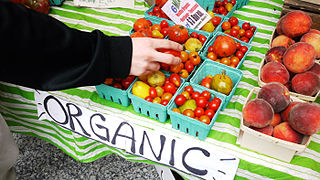
The organic movement broadly refers to the organizations and individuals involved worldwide in the promotion of organic food and other organic products. It started during the first half of the 20th century, when modern large-scale agricultural practices began to appear.

Organic certification is a certification process for producers of organic food and other organic agricultural products. In general, any business directly involved in food production can be certified, including seed suppliers, farmers, food processors, retailers and restaurants. A lesser known counterpart is certification for organic textiles that includes certification of textile products made from organically grown fibres.

Grundig is a Turkish consumer electronics manufacturer. It is owned by Arçelik A.Ş., the white goods manufacturer of Turkish conglomerate Koç Holding. The company manufactures domestic appliances and personal-care products.

L'Occitane en Provence, "the Occitan woman ," commonly known as L'Occitane, is a French luxury retailer of body, face, hair, fragrances, and home products based in Manosque, France. It was founded in 1976 by Olivier Baussan, with the purpose to create a company that celebrates and preserves the traditions of his native Provence. In 2010, the company became listed on the Hong Kong Stock Exchange. In 2024, controlling shareholder Reinold Geiger offered to take the company private.

Oeko-Tex is a registered trade mark of the International Association for Research and Testing in the Field of Textile and Leather Ecology. It is used to represent the product labels and company certificates issued by the Association.

RAIL4CHEM was a German rail freight transport company, and the parent company of a number of European subsidiary rail freight transport companies including rail4chem Benelux B.V. (Rotterdam), the rail4chem transalpin AG (Basel) and Fer Polska S.A. (Warsaw).
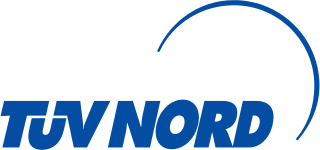
TÜVs are internationally active, independent service companies from Germany and Austria that test, inspect and certify technical systems, facilities and objects of all kinds in order to minimize hazards and prevent damages. The TÜV companies are organized into three large holding companies, TÜV Nord, TÜV Rheinland and TÜV SÜD, along with the smaller independent companies TÜV Thüringen, TÜV Saarland and TÜV Austria.

Weleda is a multinational company that produces both beauty products and naturopathic medicines. Both branches design their products based on anthroposophic principles, an alternative medicine.

Melvita is an international retailer of body, face, and home products based in Lagorce, France. The company was founded in 1983 by biologist and beekeeper, Bernard Chevilliat on a farm in the Ardèche, France.

MADARA Cosmetics also known as MÁDARA, is a Latvian manufacturer of organic skin care, hair care and baby care products. The ingredients include biologically certified blossoms and herbal extracts from the Northern and Baltic region. The brand name MADARA is the Latvian name for a common inhabitant of Baltic meadows – Galium mollugo, commonly known as bedstraw or wild madder. Its spatial pattern or fractal is also depicted in the logo of MADARA Cosmetics, which received the EULDA/WOLDA award and the title "Best of Latvia" in 2007.
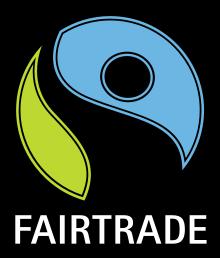
A fair trade certification is a product certification within the market-based movement of fair trade. The most widely used fair trade certification is FLO International's, the International Fairtrade Certification Mark, used in Europe, Africa, Asia, Australia and New Zealand. Fair Trade Certified Mark is the North American equivalent of the International Fairtrade Certification Mark. As of January 2011, there were more than 1,000 companies certified by FLO International's certification and a further 1,000 or so certified by other ethical and fairtrade certification schemes around the world.
Swiss Drinks Limited was a Swiss company, known as Obermeilen, specializing in the production of fruit based products, flavorings and distillates for manufacturers of the food industry. "The flavours and extracts are suitable for various applications: beverages, confectionery, bakery, chocolate, dairy products. " In 2014 the company was taken over by Bischofszell Nahrungsmittel AG (Bina) and in 2015 Bina announced that they will shut down the production facility in Obermeilen and move the entire production to Bischofszell.
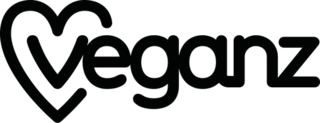
Veganz Group AG is a vegan brand headquartered in Berlin, Germany. Veganz was founded as the first vegan supermarket chain in Europe.
COSMOS stands for "COSMetic Organic and Natural Standard", which sets certification requirements for organic and natural cosmetics products in the Europe. The standard is recognized globally by the cosmetic industry. By adhering to specific guidelines, cosmetics marketers can use COSMOS signatures, which are registered trademarks, on packaging to confirm the products meet minimum industry requirements to be considered organic or natural.
Texaid-Textilverwertungs-AG (TEXAID) is a commercial company for the recycling of used clothing, 50% of which is owned by the German Böschen family, 50% by a consortium of the Swiss Red Cross, Winterhilfe Schweiz, Solidar Suisse, Caritas Switzerland, Kolping Schweiz and the Swiss Protestant Church Aid Organisation (HEKS). Based in Schattdorf, Switzerland, the company is one of the largest organisations in Europe for the collection, sorting and recycling of used textiles.
Hanro International GmbH, with headquarters in Götzis in Austria, produces lingerie, nightwear, and loungewear for men and women. The company’s products can be found in almost 50 countries and are sold at specialty retailers, department stores, and its own 14 boutiques and outlet stores. The company was founded in 1884 in Liestal, Switzerland, by Albert Handschin. The Huber Group acquired the company in 1991.
A Certified Organic Sunscreen, also known as Petrochemical-Free Sunscreen, is a third party certified sunscreen product consisting of certified and approved organic ingredients, with typically zinc oxide acting as the photo-protector. An organic sunscreen is verified and approved by a certifier to international or national organic standards, such as NSF/ANSI 305 and USDA organic, which define production and labelling requirements for personal care products containing organic ingredients. These standards are complemented by existing sunscreen regulatory bodies such as the FDA that regulate the efficacy of the sunscreen, safety and permitted ingredients. Generally speaking, sunscreen has photo-protective properties that reduce the risk of skin cancer and ageing with relation to the SPF value and proper application.
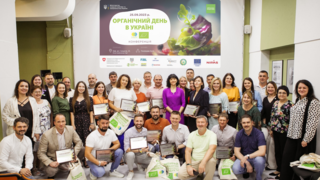
Organic market in Ukraine is a segment of the economy aimed at the production, circulation and consumption of organic products. The organic market in Ukraine includes the cultivation, production and/or circulation of various agri-food products in accordance with the organic production standards established by Ukrainian and/or international legislation. This market is an important segment of the Ukrainian agriculture and consumer market, which contributes to the preservation of the environment, maintenance of soil, plant, animal and human health, and development of sustainable agriculture.














